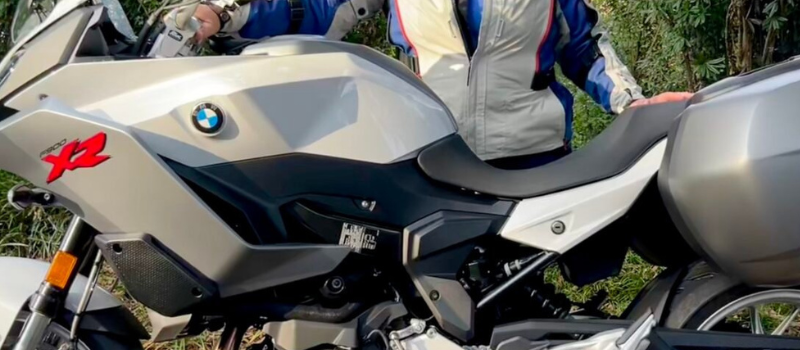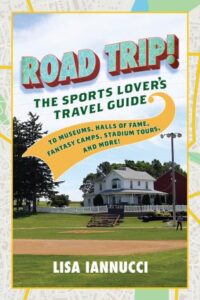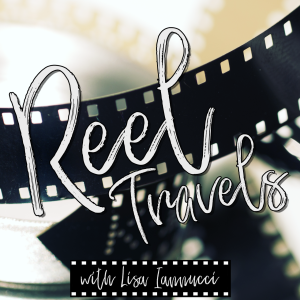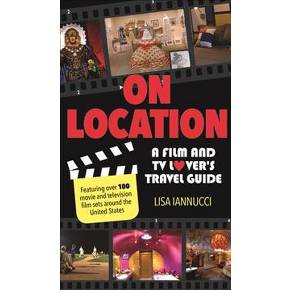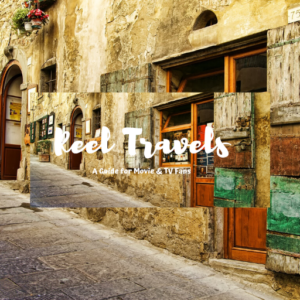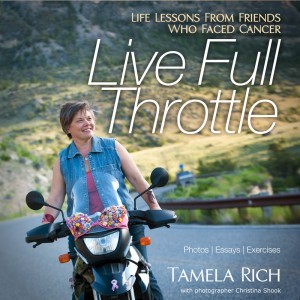
Since I have many years of writing experience, I’m often a panelist at various writer’s conferences. I was asked to be a panelist at The Publicity Summit last year, where people pitch me story ideas in hopes that I’ll write about them. I often hit on sources I can use for my articles, but at last year’s Summit, I met Tamela Rich, author of Live Full Throttle: Life Lessons From Friends Who Faced Cancer. When I heard her story I knew I wanted to profile her here. According to her website, Live Full Throttle: Life Lessons From Friends Who Faced Cancer is a collection of the stories she heard from women facing life’s ultimate sink hole, and doing it with grace, humor, moxie and joy. I had the pleasure of interviewing Tamela and she provides some great tips for fellow Virgin Travelers too!
What stopped you from traveling before now?
As a mother with a career I had a lot of irons in the fire and travel was not a priority. It was definitely a daydream—I even subscribed to travel magazines—but it was not something I could afford the time or money to do until the boys (now in their twenties) were older.
What prompted you to begin traveling now?
In 2010, in the aftermath of a devastating business failure and personal crisis, I needed time and space and hoped to discover my new self. We all have said it or thought it, “I need to get away…”. I needed to do just that, to relaunch my life, and I thought that 7500 miles of “helmet head” between North Carolina and Oregon would help me do just that. But first, I had to learn to ride a motorcycle.
With three months of proper training and with the right equipment, I took that first solo motorcycle trip. I joined forces with a group of women who blinged up their motorcycles in pink swag to raise money and awareness for breast cancer causes, strapped a pink bra across the windshield of my motorcycle and took off. That’s when my life changed forever. I talked about that in my TEDx talk.
People across the country started approaching me at scenic overlooks, dusty gas stations, restaurants—everywhere—to tell me how cancer had touched their lives. Lots of stories began with “I want to tell you about my mom.” Something became obvious very quickly—people wanted and needed to share and relate their stories even though we were strangers. This need to connect with each other remains and is reaffirmed on every trip I take.
I had never intended to hold space for other people’s stories when I first hit the road; I thought I was doing a good deed for a breast cancer charity and while I no longer travel with a pink bra on my windshield, I do allow plenty of time in my itineraries for chance encounters with people.
This point is crucial in the difference between a planned trip with a certain destination and a tight schedule with time goals to be met along the way. I stop when I want and where I want without the pressure of having to move on. With this freedom to see the small sights—the gems of our country that don’t get lots of advertising—I meet people at the counter of a truck stop or at a national park or other roadside attraction. Sure, we all travel to see the sights, but I have found that the people I’ve met by chance encounter have given me beautiful insights to the world around me and to myself.
For instance, I met a man at an Oregon gas station who was walking across the country from Washington State to his home in Massachusetts. He wanted to see America before he went blind with macular degeneration. His story has stayed close to my heart; I’ve encountered a number of people who have reminded me that life is short and unpredictable. Carpe diem!
A motorcycle?! Wow! Tell me about your background with a motorcycle…why a bike?
It’s the best way to travel. Remember when you were a kid on a bicycle cresting a hill by a stream? And as you rolled down the other side that lovely scent would hit your nostrils? You miss that in a car but not on a motorcycle!
On a motorcycle you are totally exposed—you’re not viewing the world from inside a bubble, you’re a part of the world. You see the teeth on the roadkill and it breaks your heart. Little kids wave to you from their car seats. You feel the pelting rain and the glorious sunshine. It’s a lot of fun to pull up to a gas station and have someone hop out of a minivan to tell you they rode a bike “back in the day” or to ask you where you’re headed. Motorcyclists are much more approachable than motorists—I am both so I speak from experience.
Of course I didn’t know that when I got the urge to ride a motorcycle. My dad and brother got bikes two years before I did and toured many of the Western states together. Getting pictures and videos from them pushed me to take the plunge.
You’re not a cancer survivor, but you decided to honor those who have been affected on your bike ride. Why?
Honestly, I was just looking for a worthy cause to align with on my first road trip. Breast cancer is the 800-pound gorilla of medical and non-profit fundraising and wasn’t my first choice because I wanted to do something with a more observable outcome, like maybe raising money for a child’s wheelchair. Breast cancer really picked me (I covered this in my TEDx talk).
Fate has played a major role in my life as a motorcyclist and traveler, including putting me in touch with the cancer community. My life has been profoundly changed by the life lessons I learned from those facing their death or holding hands with someone else who is.
Explain the title of the book, “Live Full Throttle.”
Everyone I interviewed for my book is a motorcyclist. That limitation was a way to place a control on the sample (to use scientific jargon!). In those interviews I was struck by the idea that you can live a whole life even if you are in the process of dying.
Full Throttle is a motorsports term. The idea is to shift into the gear that allows you to open the throttle wide and maximize the power curve. If a person or a machine is at full throttle, they are doing something as well and with as much energy as they can. Obviously everyone has their own power curve and that curve changes over the course of a life, but to live full throttle is to do your best with what you’ve got.
What tips would you give other “Virgin Travelers?” about taking that first step?
1. Decide WHY you are doing it. Any answer is acceptable, but when you know what you want to accomplish or discover (about yourself or a destination or culture) it’s less likely you’ll be deterred.
2. Schedule your time off and consider it sacred. You don’t have settle your itinerary before scheduling your travel; there’s time for that. You want to make it difficult to change your mind!
3. Go at least one day without eating at a chain restaurant or doing something you could do at home. When I pull into a town around mealtime the first thing I do is ask a local where I can get a meal that’s cooked by the owner and served on real plates. (Sadly, this is becoming more difficult, even in the smallest burgs). There are apps that help me do this too, but not every cafe is reviewed in Yelp and TripAdvisor.
4. Get off the Interstate and travel the two-lane roads and take note of the different feel you get and different sites you’ll see.
5. Once off the the Interstate, when something calls to you, even if it’s the World’s Largest Jackalope follow that call. You’ll discover something about yourself when you do. That’s why I encourage people to think about the journey to the “big destination” (like a national park or music festival) as an adventure unto itself.
6. Don’t overbook yourself. Leave at least 25% of your time unplanned and give yourself permission to change your itinerary once you get going.
7. Commit to taking at least one detour from the planned itinerary based on a roadside sign or a recommendation from a local. Allow time in your travel schedule so this adds no stress but instead becomes an added benefit to the trip.
For more information on Tamela Rich, visit http://tamelarich.com/livefullthrottle/.
If you would like to be featured as a Virgin Traveler and tell your story, contact me!
